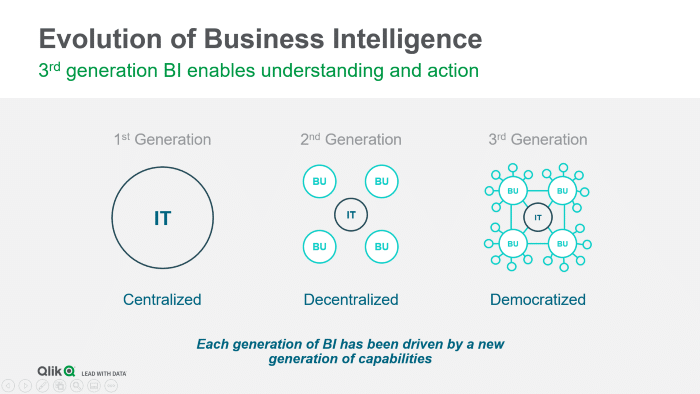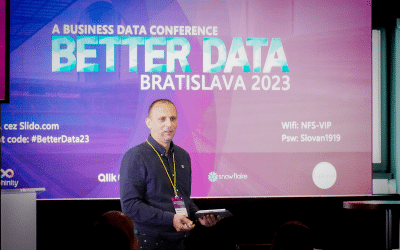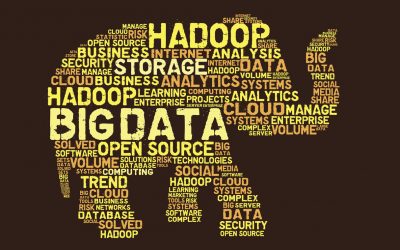“Dashboards are dead” was a title that really spiked my interest recently. I read it through. My key takeaway: dashboards are a huge improvement from spreadsheets, but eventually the company doesn’t keep up with increased demand for data insights from different departments. Also, the form of dashboards is not very agile in its essence.
I agree with the first part. It’s not humanely possible to satisfy company-wide demand for data insights in an environment where data analysts are preparing dashboards for requesters.
Sure, we can improve technology, switch from a dashboard-like view to a notebook-like view. But the only way to truly democratize data is to educate employees on data literacy and provide self-service capabilities. Working as a Qlik Master Reseller in the CE region, here’s the slide we use to explain how we view the evolution of Business Intelligence inside the progressive company.

Source: Route to self-service analytics. Qlik Sense Product Presentation
We are aiming for 3rd generation BI everywhere. I believe that democratizing data has more to do with company culture and data literacy programs, than with the tool used.
We do have technology in place. BI tools are (more or less) intuitive enough to create dashboards and explore insights with great speed and agility.
What companies lack in my experience, is data-centric culture. This requires much more than just buying some licenses and implementing software. It requires enablement programs that focus on data literacy. This requires several steps that I will be writing about.
This is my take on self-service analytics and data literacy, if you would like to learn more about our experiences, do not hesitate to contact me. To look at data literacy in general, I recently posted an article about What is Data Literacy and Why Should You Care.
Read my other blogs HERE.







 (4,75)
(4,75)
